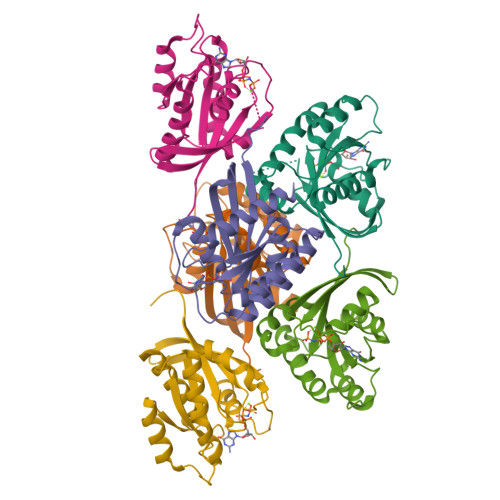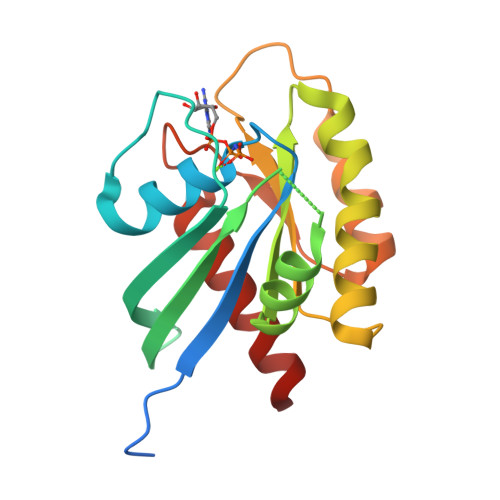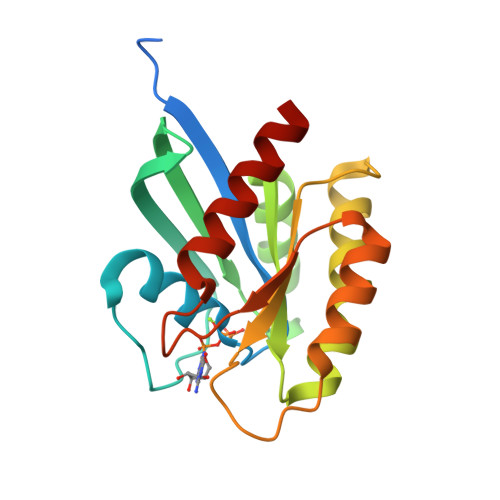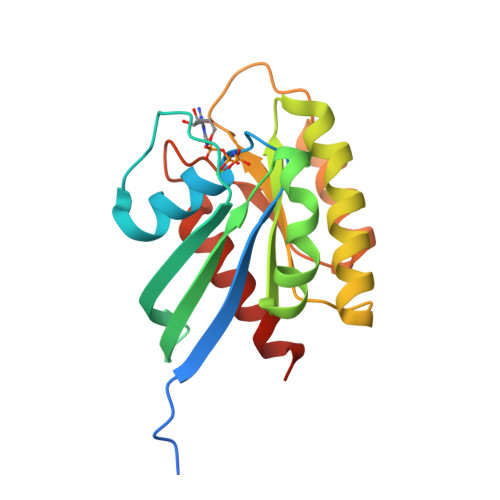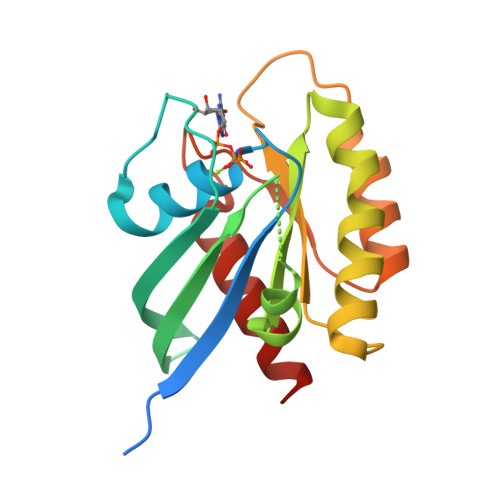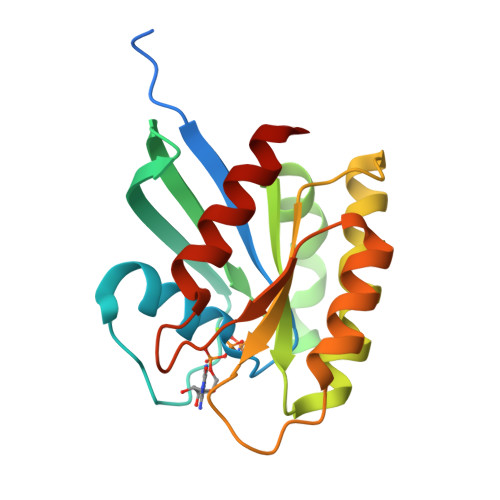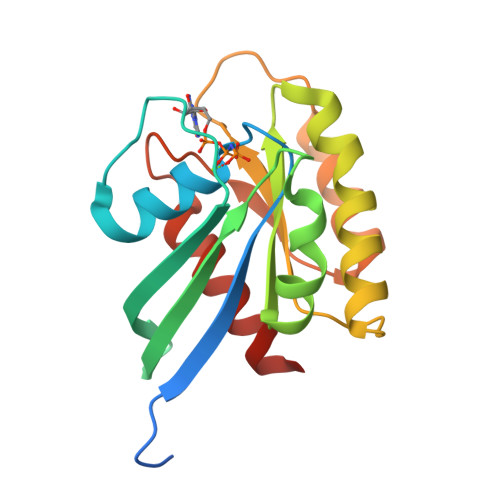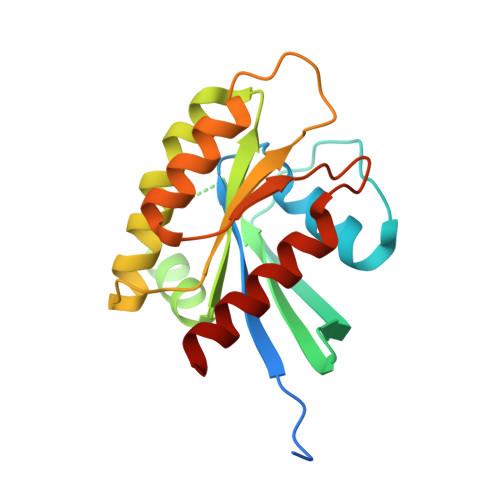Multivalent Small-Molecule Pan-RAS Inhibitors.
Welsch, M.E., Kaplan, A., Chambers, J.M., Stokes, M.E., Bos, P.H., Zask, A., Zhang, Y., Sanchez-Martin, M., Badgley, M.A., Huang, C.S., Tran, T.H., Akkiraju, H., Brown, L.M., Nandakumar, R., Cremers, S., Yang, W.S., Tong, L., Olive, K.P., Ferrando, A., Stockwell, B.R.(2017) Cell 168: 878-889.e29
- PubMed: 28235199
- DOI: https://doi.org/10.1016/j.cell.2017.02.006
- Primary Citation of Related Structures:
5UQW, 5US4, 5USJ - PubMed Abstract:
Design of small molecules that disrupt protein-protein interactions, including the interaction of RAS proteins and their effectors, may provide chemical probes and therapeutic agents. We describe here the synthesis and testing of potential small-molecule pan-RAS ligands, which were designed to interact with adjacent sites on the surface of oncogenic KRAS. One compound, termed 3144, was found to bind to RAS proteins using microscale thermophoresis, nuclear magnetic resonance spectroscopy, and isothermal titration calorimetry and to exhibit lethality in cells partially dependent on expression of RAS proteins. This compound was metabolically stable in liver microsomes and displayed anti-tumor activity in xenograft mouse cancer models. These findings suggest that pan-RAS inhibition may be an effective therapeutic strategy for some cancers and that structure-based design of small molecules targeting multiple adjacent sites to create multivalent inhibitors may be effective for some proteins.
Organizational Affiliation:
Department of Chemistry, Columbia University, New York, NY 10027, USA.








